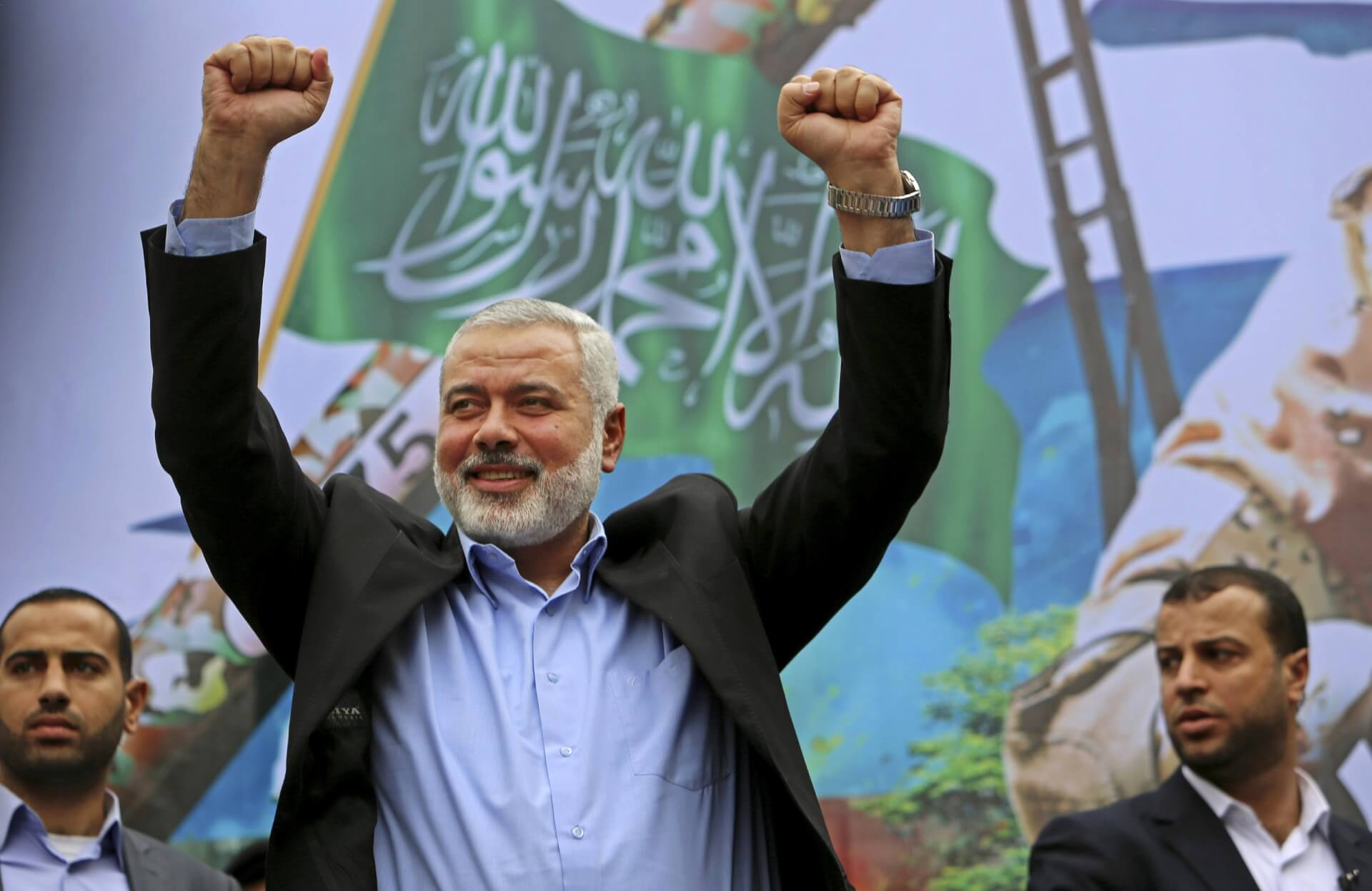The Islamic militant group Hamas on Sunday said it had re-elected Ismail Haniyeh as its “supreme leader” for a second term. Haniyeh, who has been living in exile since 2019, was given four more years to head the Shura Council, Hamas’ top decision-making body.
Confirming Haniyeh’s re-election, a Palestinian official told Reuters that party members held an internal election. The Times of Israel reported that Hamas’ Shura Council met on Saturday and elected Haniyeh and convened again on Sunday to elect his deputy and the remaining members of its political bureau. The news website mentioned that Haniyeh’s re-election “would bring an end to the months-long internal leadership vote inside Hamas.” The election is held in “near-total secrecy” every four years, dividing the vote into four areas: Gaza, the West Bank, the diaspora, and Hamas prisoners in Israel.
Haniyeh has been the leader of Hamas since 2017, and his re-election cements his grip on the fundamentalist group that maintains tight control of the Gaza Strip. He is also believed to be in charge of the group’s political activities in Gaza and the West Bank, despite living in Turkey and Qatar for the last two years.
Also Read: Hamas Is No Saviour of the Palestinians
Haniyeh was an assistant to Hamas founder Ahmed Yassin, who was killed in an Israeli airstrike in 2004 during the second Intifada. Following Hamas’ victory in the 2006 Gaza parliamentary elections over rivals Fatah, Haniyeh was appointed as its Prime Minister (PM). In 2007, Hamas seized complete control of Gaza by ousting the Mahmoud Abbas-led Fatah party from the enclave after a short but violent civil war.
As PM, Haniyeh oversaw two major wars with Israel in 2008 and 2014 and several short-lived conflicts. In 2017, Haniyeh became Hamas’ leader after replacing Khaled Mashaal, who had led the group since 1996. Mashaal was elected as chief of Hamas’ diaspora division in the latest election. In 2018, the United States Treasury Department placed Haniyeh on its terrorism blacklist, saying that he was involved in “terrorist attacks” on Israeli and American civilians. Haniyeh was also in charge of Hamas during the 11-day war with Israel in May, which killed more than 250 Palestinians and 12 people in Israel.
Hamas, a self-declared “Islamic resistance movement,” was founded in 1987 to wage an armed struggle against Israel to liberate Palestine. Before 2017, Hamas considered the Palestinian territories and Israel as part of a Palestinian state. The group accepted the pre-1967 borders for a future Palestinian state for the first time in 2017, marking a significant change in its approach to the Israeli-Palestinian conflict. However, it has not recognised Israel and calls it the “Zionist enemy.” While Turkey, Syria, Qatar, and Iran support Hamas, several countries, including the US, the United Kingdom, the European Union, Australia, and Japan, have listed it as a terrorist organisation.

